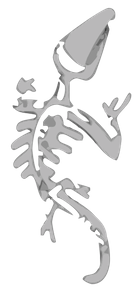
Posted
Hello everyone!
I hope someone can help me with my question.
Is it possible to write music for Guzheng (Chinese zither) with Synfire?
Let's say I want to write a song in pentatonic D major.
Playable notes (for 21-string Guzheng) would be:
D2, E2, F#2, A2, B2, D3, E3, F#3, A3, B3, D4, E4, F#4, A4, B5, D5, E5, F#5, A5, B5, D6.
These are core notes. I'm not talking right now about bends and other stuff.
The figures I put should be played only on these notes.
Is it possible in Synfire? To lock it to play only D, E, F#, A, B notes (pentatonic D major)?
I've found in Synfire "pentamajor" set:
Pallete -> Scale Set -> More...
Catalog -> "Vertical Scale" tab - pentamajor.
That's what I need.
But how can I use it?
I want to put combinations of figures so they play only notes I mentioned.
Thu, 2016-12-08 - 22:02 Permalink
Hello Guzheng, welcome to the user forum!
Sure. Synfire can compose modal music limited to one scale. You would use that scale as the horizontal scale on a new palette (drag it off the Catalog and drop it on a palette, then remove all other scales from that palette, such that only the one scale is left). Then save that palette's Scale Set as an "alternative key" to the Catalog.
In your harmony progressions, you can now assign that "alternative key" to some or all chords.
Be sure however you only use chords from the palette you've built.
Also enable "Alternative Keys" with the Scale Selection Preferences of the arrangement.
Fri, 2016-12-09 - 07:24 Permalink
I've managed how to get D Pentamajor palette.
But Synfire doesn't let me to save anything cuz it's in Demo:
Palette - Layout - Preset - Save As... (pic related)
It says "This feature is disabled in the demo".
Could you please tell me, is there any video tutorials about modal music in Synfire?
Fri, 2016-12-09 - 23:24 Permalink
Another newbie demo user here struggling to setup some Arabic Maqam scales on Synfire.
Even the file -> export -> scale set to catalog says "This feature is disabled in the demo".
IMHO, Synfire has too many restrictions for demo users. We can't save custom catalogs or custom palettes or custom sketches etc. Synfire is a complex software and with restrictions in so many places, it is almost impossible to explore it in detail within 30 days. Most of the time gets lost in reinventing the wheel everyday. Yesterday I carefully setup several complex Maqam scales and there is no way to save them. They are gone. Today I have to setup them again from scratch.
Sat, 2016-12-10 - 03:44 Permalink
Thx for your advice, Supertonic. It does not work in Demo mode though (as Surprise
has already mentioned).
Surprise, have you managed the way you can use arabic scales in Synfire? I'm a bit lost with Synfire principles. I mean I understand the figures part (figures can be placed in any context and so on). But there is another important part in Synfire - Harmony. Synfire sees a harmony as a chord progression. But in Chinese music we mostly think about tone groups. Is there any video about tonal music in Synfire? Any tutorials, examples, anything?
Sat, 2016-12-10 - 13:23 Permalink
Hi Guzheng,
After searching this forum a lot, this is what I understand: Synfire can work without chord progressions. You can restrict the notes to a scale (tone group) and work within that scale without worrying about chords or chord progressions messing things up. All you have to do is bypass the "voice leading" which is a fancy name for Synfire's AI.
Forum user juergen has made a helpful video regarding this. (http://users.cognitone.com/topic/static-mode-note-entry-music-lessons?p…) (Basically select Interpretation -> Preset -> Bypass)
Also there is an easier way than what Andre has explained above to get the palette you want. Just double click on your custom scale in the catalog. Now this combined with juergen's tutorial should be enough to work with Chinese or Arabic music. (Notice that in the video juergen is using teal colored figures because he is targetting vertical scale. If you want to retain a horizontal scale you should use the default blue colored figures. Page 16 in Synfire manual explains the different colors.)
With all that said, using Synfire without chords or chord progressions makes it a bit pointless, IMO. The strength of Synfire lies in its 'voice leading' AI, the dance between "figures" and "chords".
Sun, 2016-12-11 - 18:56 Permalink
Synfire sees a harmony as a chord progression.
Yes, that's true. However, it is possible to use Synfire in a way that ignores the chords and plays only a selected scale.
I've prepared a short video:



